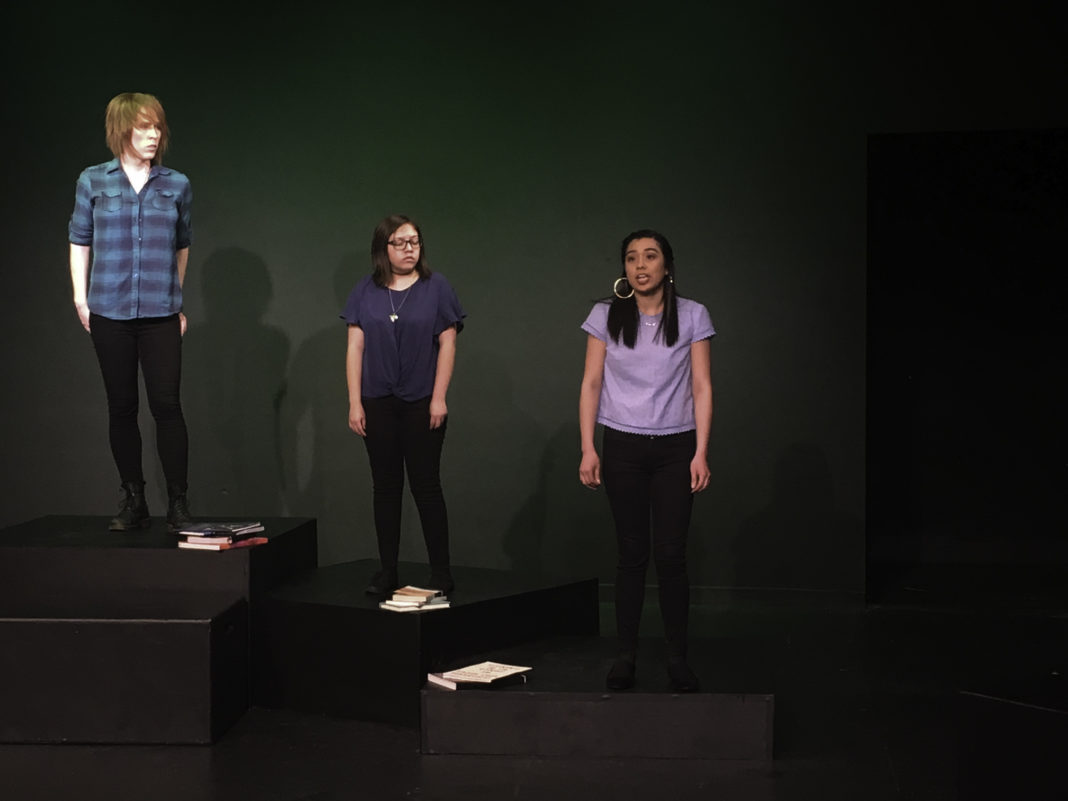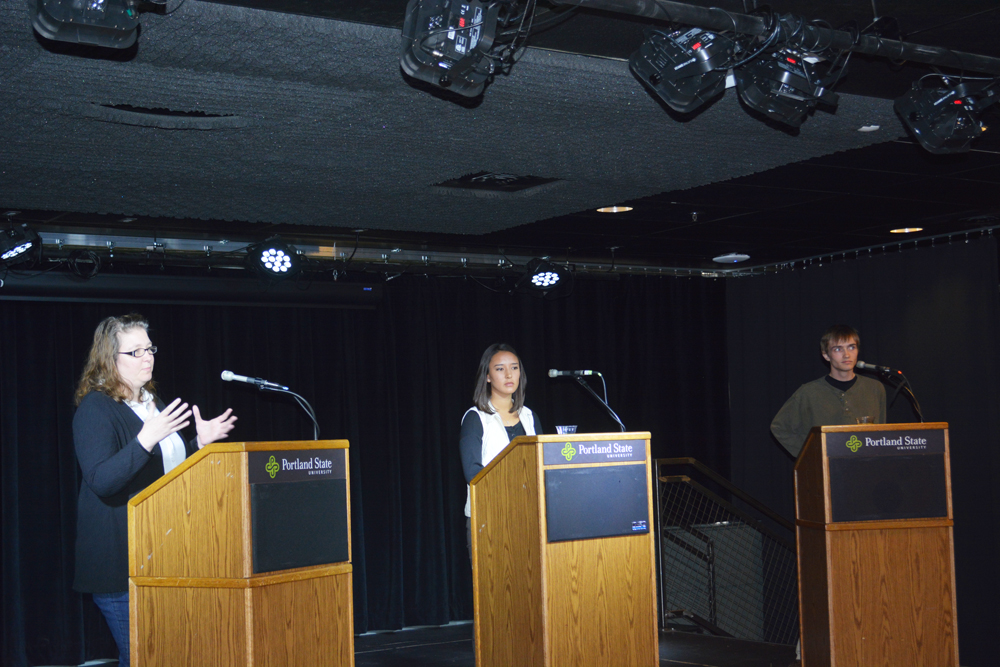The Portland State Board of Trustees met Thursday, April 12 to vote for a 4.98 percent student tuition hike. However, after students protested on the fifth floor of the Academic and Student Recreation Center and some Board members requested a financial efficiency report, the Board adjourned the vote until a later date.
Board Chairman Karl Rick Miller, Jr. began the meeting by calling on Associated Students of Portland State University President Brent Finkbeiner and Vice President Donald Thompson III for comments.
“A constant collaboration between ASPSU and the Board is important so as to galvanize the path for student voices to be heard,” Finkbeiner said while pointing to students holding posters that read “No tuition hike!”
He added, “Real listening is allowing somebody to change you.”
Thompson added that the university should be viewed as a source of community development rather than treated as a business.
After ASPSU’s comments, the meeting moved on to reports from chairs of various committees, including Vice President of Finance and Administration and Chair of the Tuition Review Advisory Committee Kevin Reynolds.
Reynolds detailed the tuition-setting process, budget projections and hike justification in his report. He reiterated that due to inflation and increases to Oregon’s Public Employees Retirement System, the university faces a 3.4 percent budget shortfall next year if state support does not improve.
“The proposed hike is comparable to other public universities in the region,” Reynolds said. “We need to close the gap between PSU and those other universities.”
Last spring, the Board passed a nine percent tuition increase, but Oregon’s Higher Education Coordinating Commission rejected the hike along with even larger hikes from other state universities. After Oregon Governor Kate Brown secured $70 million for higher education at the last minute, the Board reduced the tuition increase to 5.45 percent.
A budget projection the Board presented last spring indicated the university might attempt another nine percent increase to tuition next spring after passing this year’s hike. On April 11, Reynolds said it would take close to $130 million from the state, distributed among all seven state universities, to keep tuition increases from nearing that amount.
“Our intention is never to hike the fee by nine percent next year,” Reynolds told the Board. “It will be dependent on whether we obtain the state grants or not.”
Reynolds said the cost is now optimized, and the best solution is to hike the fee now. With delay, he said, it becomes increasingly more difficult to make decisions.
Students did not receive the report well. “We have many unwanted things on campus, and we are ready to give [them] up,” a student said. “Beefing up campus security by bringing in more cops is one of them.”
Another student challenged Reynolds for comparing the hike with those at other universities, saying, “PSU prides [itself] in being one of the Top 10 Innovative Universities [based on a 2017 U.S. News & World Report ranking]. Innovators do not hold themselves to industry standards.”
ASPSU Senate candidate Camilo Abreu Assad also voiced opposition. They said putting the financial pressure on students is not right because the university, not the student, benefits directly from state funds.
“We suggest a freeze on fee hikes for the next three years and a freeze on the salary hike of [the] top 25 percent of salary holders in the administration,” Finkbeiner concluded. “We are in crisis mode until the budget issues are mitigated. Leaders shouldn’t make decisions in such a way that those under them suffer and they don’t.”
He added that deficits could be reconciled using funds from the business community. He also said students are willing to join the conversation and help lobby for more state funds. “Tell the state enough is enough” Finkbeiner said. “They will not deny [us] as they do not want the public education system to fail.”
One student said that they felt the Board did not care about students. Women’s Resource Center Director and Board member Erica Bestpitch countered the student by saying the Board aims to care for the needs of students.
The Board members went on to discuss grants for students as remediation for the tuition hike. Several Board members eventually retracted their support for the tuition increase.
“We have never seen PSU as a business. However, it is a financial institution,” said Board member Pete Nickerson. “I appreciate the measured, rational and civil way of the ASPSU members for all the discussions. We hear you. We assure that we will give this a thought and rethink our decision to hike [tuition].”
Miller also suggested seeking independent counsel from outside sources to better analyze the situation. He also asked PSU President Rahmat Shoureshi to consult with his staff and come up with a more acceptable tuition fee. Miller then asked the administration for an efficiency study of the current budget and, with the consent of the Board, adjourned the vote until a later date.
Finkbeiner called on students to march toward the Park Blocks to protest, and ASPSU initiated its one-day strike.







As a former PSU student who got screwed by PSU I would like to say, Screw the board of trusties, every time they need money they go for the low-hanging fruit, students, they are poorly organized, gone in 4 years and are mostly poor. Every time I look at PSU I see a construction crane above it. Stop constructing
buildings and start building students.